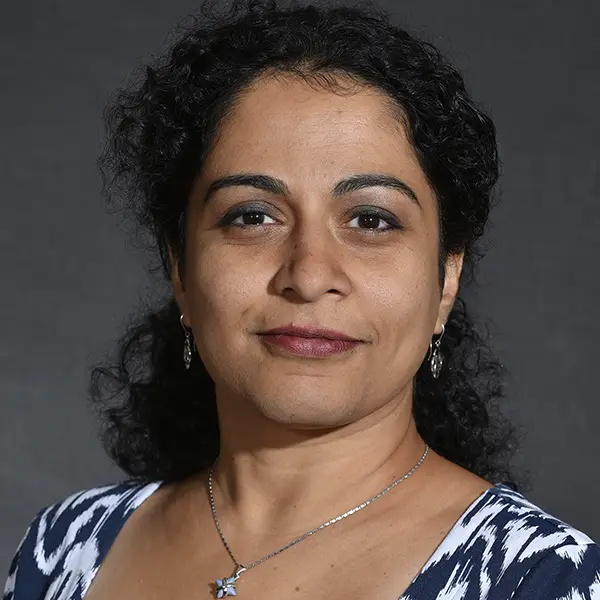New Leadership Adds to UT Research Mission
New leadership elevates research and creative activity.
Some new and familiar faces are set to lead college research and institutes this year, injecting a complement of skills and experience to further enrich interdisciplinary pursuits across the College of Arts and Sciences.
“No doubt, the new leadership will introduce innovative new ideas and perspectives that will help strengthen the vital collaborations enabled by our centers and institutes,” said Associate Dean for Research and Creative Activity Mike Blum. “The college is excited to support their efforts.”
Institute for Climate and Community Resilience (ICCR)

Nicholas Shanahan joined UT as associate director of the Institute for Climate and Community Resilience (ICCR). He comes to Rocky Top from the North Carolina Institute for Climate Studies, where he focused on climate science engagement and project management.
Shanahan brings extensive experience in connecting Appalachian communities with climate science. At ICCR, he is leading programming initiatives that foster collaboration between UT faculty, regional scholars, and community organizations to strengthen resilience to climate hazards.
National Institute for Modeling Biological Systems (NIMBioS)
Professor Brian O’Meara serves as the interim director for NIMBioS. He is a longtime member of the NIMBioS community, bringing expertise in mathematical biology, mentorship, and interdisciplinary research to his interim role.
O’Meara will oversee planning for the next stage of NIMBioS, building on the institute’s expertise to launch impactful research and leveraging the institute’s flexible and welcoming computational infrastructure to deepen longstanding and strong connections across research communities.

Neuroscience Network of East Tennessee (NeuroNet)

Keerthi Krishnan, associate professor in the Department of Biochemistry and Cellular and Molecular Biology, is the new director of NeuroNet, which fosters and supports cutting edge research and training in the brain sciences.
Krishnan’s research looks at how we learn and interact with the environment using our senses and movement. Her lab investigates the molecular and cellular mechanisms underlying brain plasticity across ages and neurodevelopmental disorders through integrative approaches.
Krishnan adds her dynamic approach to the NeuroNET mission of connecting like-minded neuroscience researchers at all levels by forging innovative and collaborative research hubs for brain, behavioral and biomedical sciences. Her goal is to strengthen the growing research base on campus through collaborations with the Collaborative for Animal Behavior and support from the college and the Human Health and Wellness innovation initiatives.
Denbo Center for the Humanities and the Arts
Katie Burnett joined the Denbo Center in July as Associate Director of Transdisciplinary Programs, a role central to Denbo’s future growth. In this role, she will help support the center’s research projects, coordinate events, and identify and develop new programming opportunities.
A double UT alumna, Burnett earned her undergraduate degree in German and English literature in 2005 and her PhD in English in 2013 and previously served as a graduate fellow in the Denbo Center. She now engages anew in the center’s ongoing cross-disciplinary connections and works to expand on its transdisciplinary focus and public-facing, community-engaged programming at local and national levels.

Other New Research Leadership

Elsewhere in the college, the incoming cohort of new leadership includes Research Associate Professor Giovanna Vidoli, who is now directing the Forensic Anthropology Center (FAC) in the Department of Anthropology.
The FAC focuses on excellence in research, training, and service in forensic anthropology and closely related fields. As director, Vidoli generates and facilitates research, particularly innovative technological applications, using FAC resources like the Bass Donated Skeletal Collection and the Anthropological Research Facility.
By Randall Brown